NPR Hearing Quiz Part III
The NPR Music “How Well Can you Hear Audio Fidelity?” article from June 2nd says it provides a way for readers to evaluate their ability to hear audio fidelity by presenting 6 music selections encoded in a variety of formats. This is the third and final post on the validity of the test.
The 4th example that came up when I took the test is an a cappella segment from Suzanne Vega’s tune “Tom’s Diner”. Here’s the panel from the NPR site:
Figure 1 – Suzanne Vega panel from NPR Music’s site.
I didn’t expect much from a solo voice. There’s not a lot of high frequency energy in human voices. Here’s the spectrogram of the three excerpts:
Figure 2 – The spectrogram of the “Tom’s Diner” tune in MP3 (128 & 320 kbps) and an uncompressed WAV at CD specs. [Click to enlarge]
The uncompressed WAV file and the 320 kbps files have almost identical spectra. The artifacts present in the 320 version should be there. In fact, the high end of the 320 should be very similar to the 128 version.
And the dynamics information chart:
Figure 3 – Unlike many of the other examples, the excerpt with the loudest peak loudest was the uncompressed WAV file. Although, the ITU-R BS.1770-2 Loudness readings between the WAV and 128 kbps MP3 were identical. The dynamic range was not amazing…they used a compressor on her voice to even out the amplitude.
Excerpt number 5 was “Dark Horse” by Katy Perry, which was apparently the most streamed song tune of 2014. Here’s the NPR information panel associated with this tune:
Figure 4 – Katy Perry track “Dark Horse”
Here’s the spectrogram of the there formats:
Figure 5 – The “Dark Horse” spectra. [Click to enlarge]
The Katy Perry tune shows the same pattern of frequencies as the rest of the tracks. The 320 kbps MP3 file is too similar to the uncompressed file.
Here are the dynamics comparisons:
Figure 6 – The dynamics and loudness measurements of the Katy Perry tune “Dark Horse”
The WAV has the lowest peak amplitude but the highest perceived loudness. There are also clipped samples on the 128 kbps excerpt.
And finally, here’s the scoop on the Jay Z tune:
Figure 7 – Jay Z track “Tom Ford” info
Here’s the spectrogram of the three formats:
Figure 8 – The spectra for the three formats for Jay Z’s “Tom Ford” [Click to enlarge]
No new comments here…the same as the other examples.
Here’s the dynamics chart:
Figure 9 – The dynamics and loudness measurements for Jay Z.
The lowest fidelity file delivered the loudest peaks. Surprisingly, this tune has reasonable dynamics and loudness.
So that’s the lot of them. None of these tracks are stellar examples of high-resolution audio…but they never said that they were. I’ll be writing to the authors of the article to make the point that their MP3 encoder isn’t delivering as much as it could AND that the choice of tunes should have included something from the audiophile category. I’d also like to get the code for the web page and create my own quiz. Wouldn’t it be interesting to test High-Res vs. CD spec audio AND also compare heavily compressed vs. straight unmastered mixes. Just a few thoughts…

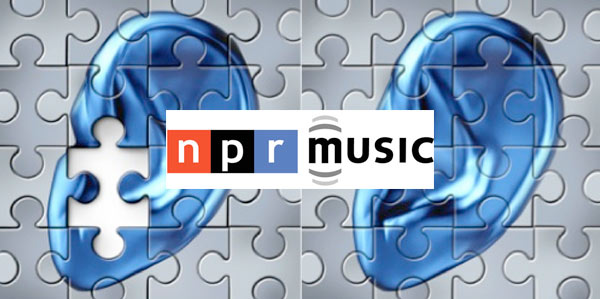
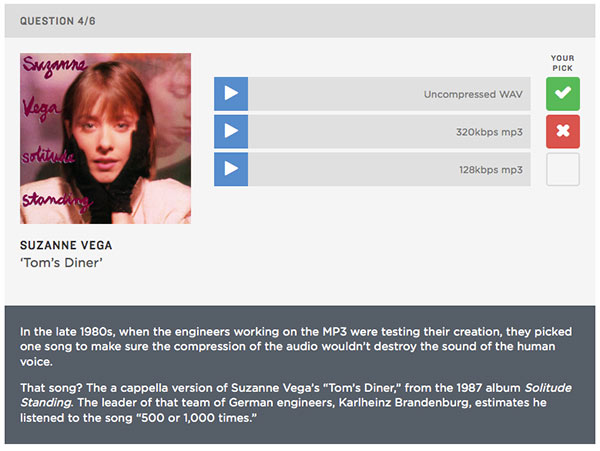

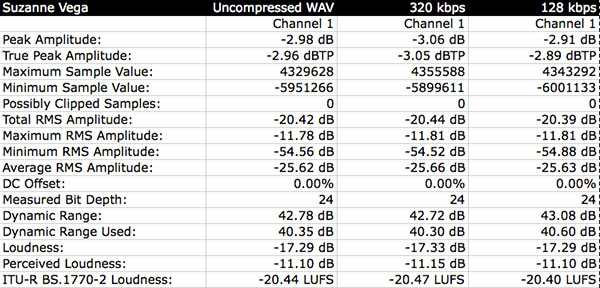
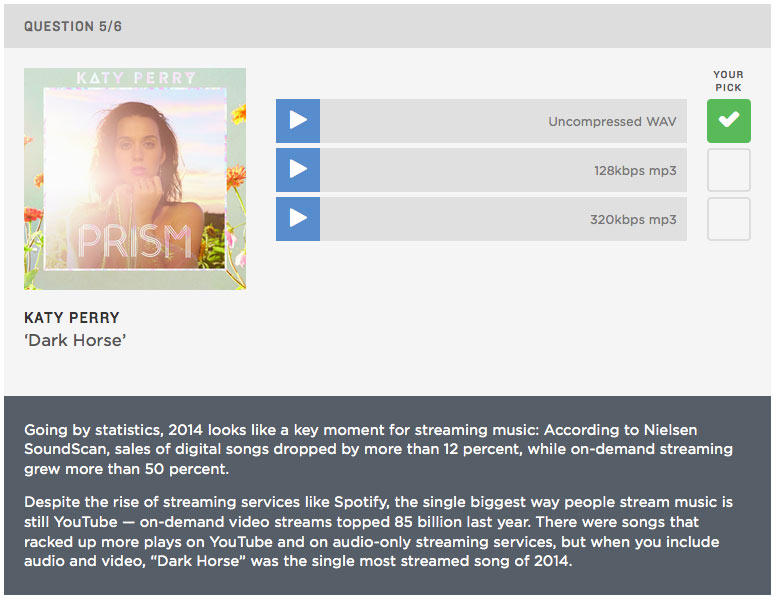
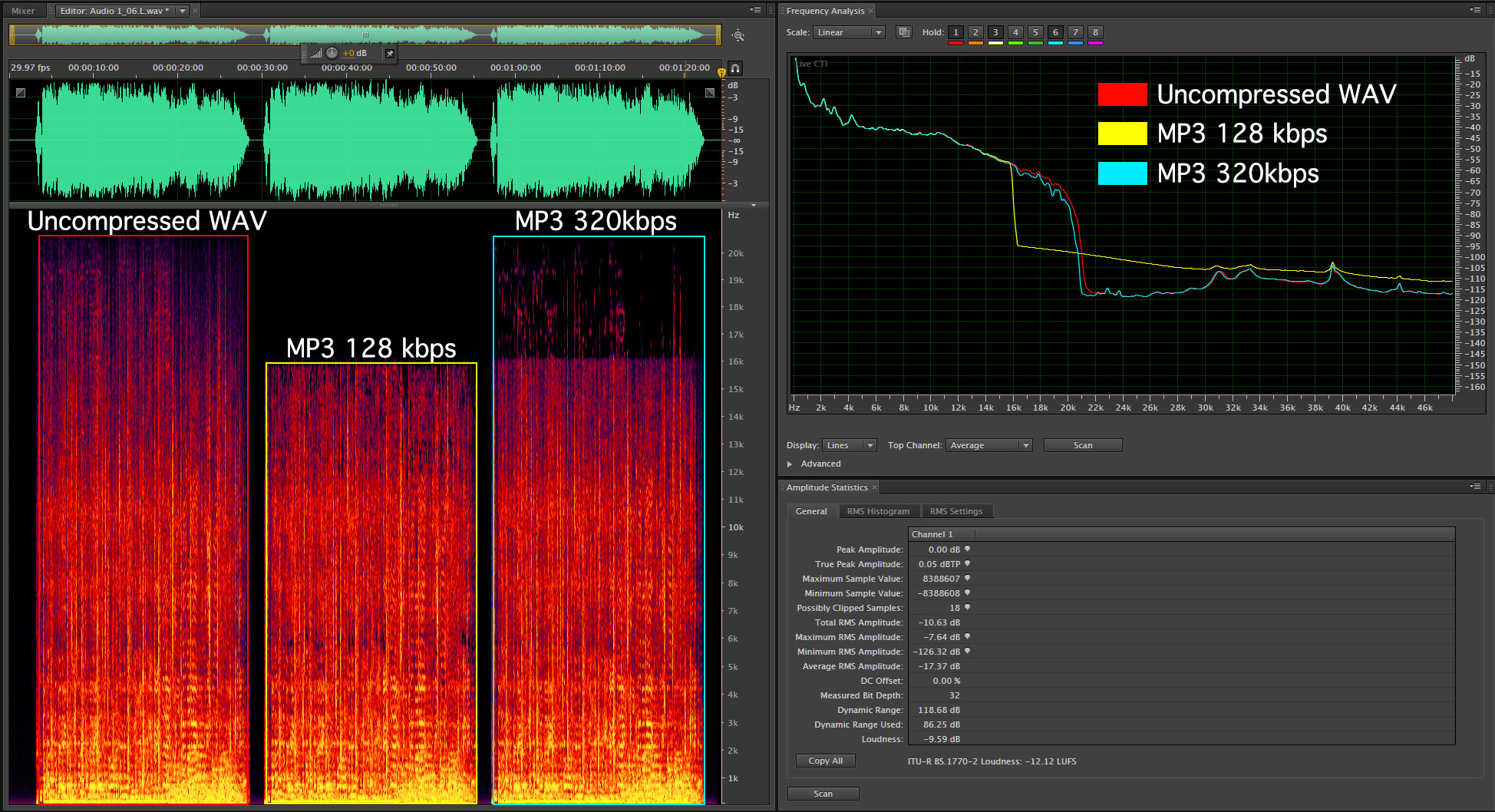
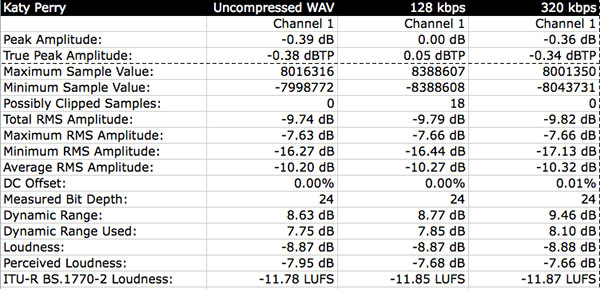
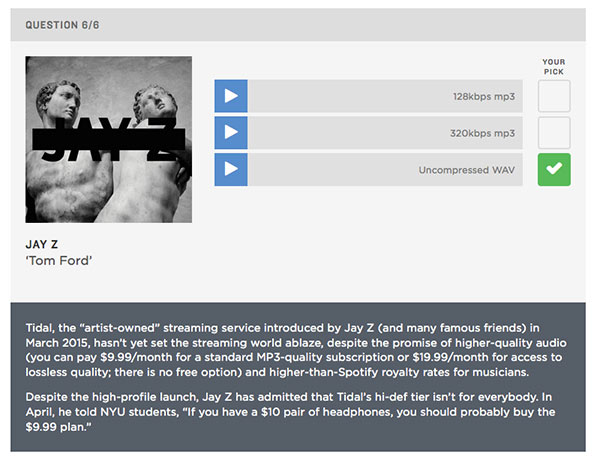
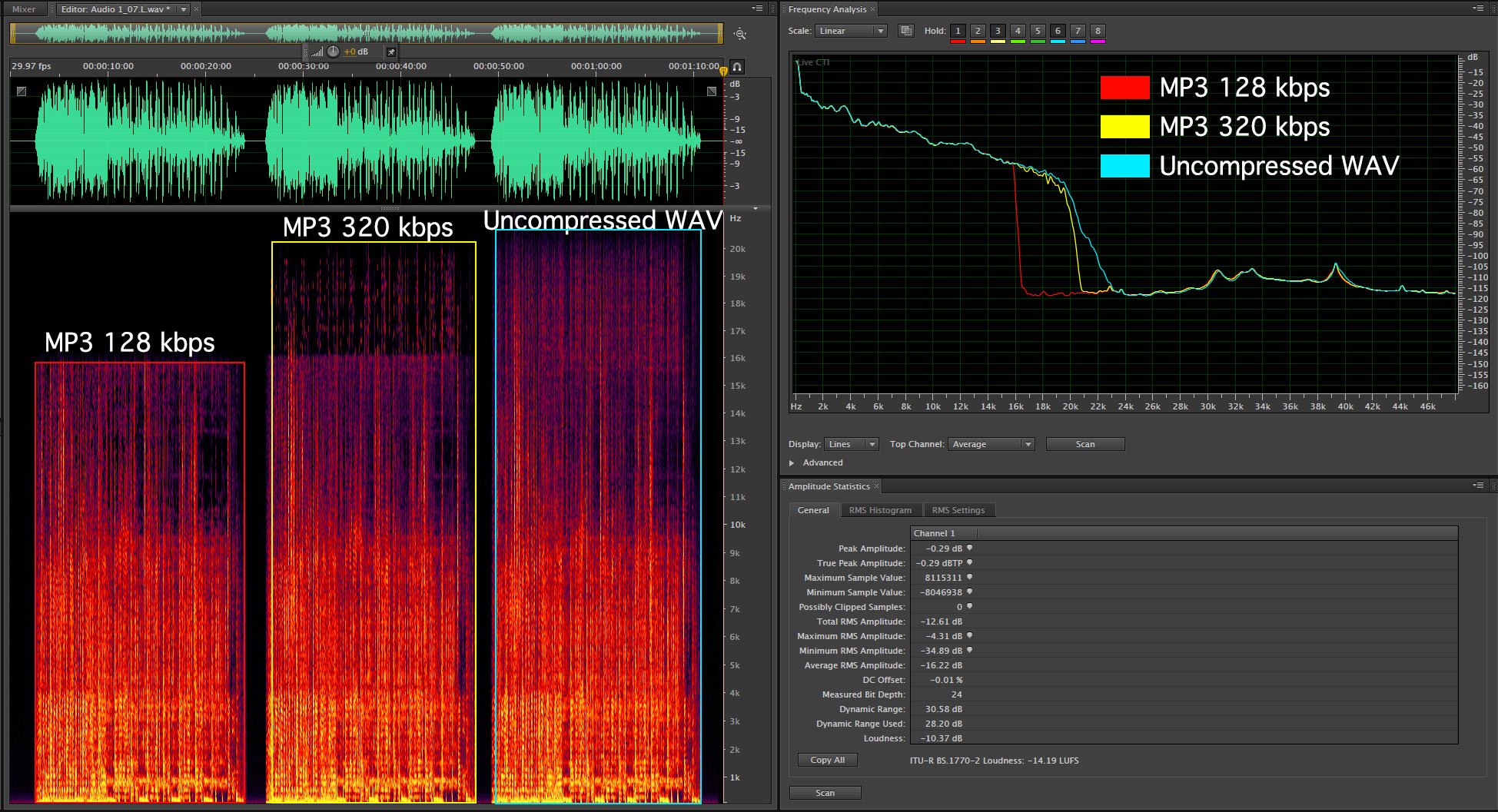
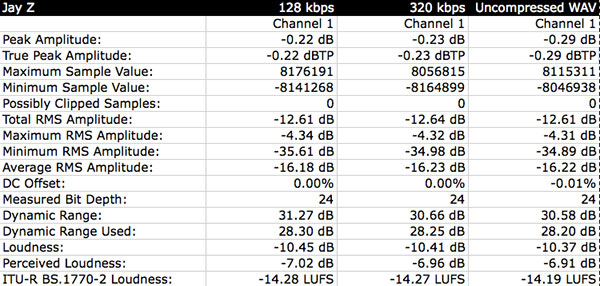
NPR, talk about pseudo based rants. Looks like they found another victim. anyone who’ll “listen”, no pun intended.
I’d love to try a quiz you put together. Good luck getting the code, etc.
Hi Mark,
NPR has a very wide audience and it would be a really interesting opportunity to set up a proper test complemented with Spectagrams, charts and additional info to show people the key elements that determine the quality of recordings and the music they buy. The one problem I see in setting up a test is the equipment people will use, but that’s of course also part of the results and HRA problematic itself, and should be a significant factor to consider.
I also think it’s a great opportunity to pitch a short version of the keynote speech you have been giving at the opening of audio shows to a wider audience – or maybe a series of articles -, and reach people beyond the audiophile and audio geek crowd on a more mainstream platform. From pretty much the same place the misinformation and hype from the usual suspects comes from.
On another note, I have always thought you should do a TEDtalk, which certainly has a more viral potential. Ever thought of that?
Anyhow, all of your above ideas are good ideas, let’s just hope the people at NPR are open to them.
Cheers!